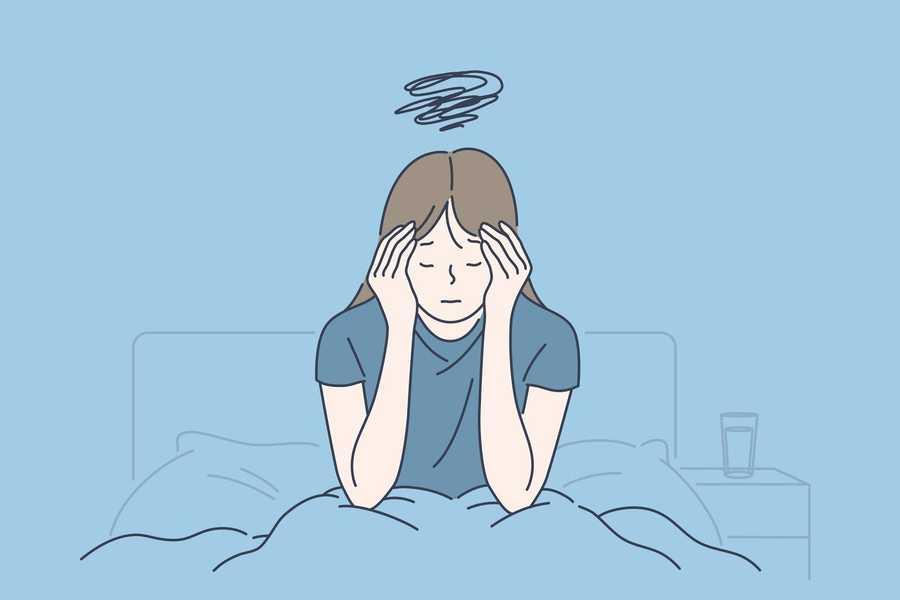Explore the World's Best Ideas
Join today and uncover 100+ curated journeys from 50+ topics. Unlock access to our mobile app with extensive features.
Rumination
If you're like most people, you've had the experience of obsessing over something stresfull that happened in your day. It may be a problem that replays itself in your mind over&over with no acceptable solution in sight. When these thoughts turn more negative and brooding, that's known as rumination.
Rumination is as stressful as it is common, in that it takes a situation that has already caused stress and magnifies the stress and the importance of the situation in our minds. Rumination also hones in on the feeling of helplessness we may have in our inability to change what has already happened.
473
2.79K reads
Understanding rumination
Rumination is compromised of two separate variables:
- Reflection: The reflection part of rumination can actually be somewhat helpful as reflecting on a problem can lead you to a solution. Also, reflecting on certain events can help you process strong emotions associated with the issue.
- Brooding: Rumination in general, and brooding in particular, are associated with less proactive behavior and more of a negative mood.
If you find yourself constantly replaying something in your mind and dwelling on the injustice of it all, you are also experiencing the negative effects of rumination.
421
1.71K reads
The negative effects of rumination
Rumination start innocently, it's your mind's attempt to make sense and move on form a frustrating situation. However, rumination can catch you in a circular, self-perpetuating loop of frustration and stress.
It's important to find ways of catching rumination before you get caught up in it and working on handling conflicts in a healthy way.
Rumination can be oddly irresistible and can steal your attention before you even realize that you’re obsessing again. In addition to dividing your attention, however, rumination has several negative effects.
396
1.37K reads
Stress based on Rumination
Studies have shown that rumination can raise your cortisol levels, signifying a physical response to stress resulting from rumination
Cortisol is a steroid hormone that regulates a wide range of vital processes throughout the body, including metabolism and the immune response. It also has a very important role in helping the body respond to stress.
400
1.38K reads
Hypertension and Rumination
A link also has been found between rumination and hypertension. Rumination may prolong the stress response, which increases the negative impact of stress on the heart.
Because of the health risks involved with hypertension, it’s particularly important to combat rumination and find healthy strategies for dealing with stress and staying centered.
Hypertension: high blood pressure
380
861 reads
Overcoming rumination
So why do people obsess over things? It appears that different people obsess over things for different reasons, and some people are more prone to it than others. Some people want to make sense of a situation, but can't seem to understand or accept it, so they keep replaying it.
Some people are trying to solve the problem or prevent similar things from happening in the future, but can't figure out how. And others may just want to feel heard and validated or want to feel justified in absolving themselves of responsibility.
404
932 reads
Establish a time limit
It can be helpful to get support and validation from your friends, but too much dissucsion of wrongs perpetrated by other can lead to a dynamic in your relationships that's negative and gossipy and lends to more reinforcement of the frustration of the situation than finding solutions and closure.
If you're seeking support from friends, you can secretly set yourself a time limit on how many minutes you'll allow yourself to devote to talking about the problem and your feelings around it, before focusing on a solution. Then brainstorm solutions with your friend, or on your own in a journal.
396
837 reads
Keep an open mind
It's suggested by more than a few therapists that what really tweaks us in others may be a mere reflection of what we don't accept ourselves.
when you think about what the other person did to make u angry, can you try and draw on a similar experience in yourself to help better appreciate their perspective and the reasons behind what they did?
even if you don't agree with them, can you empathize? forgiveness and letting go can be a great combination for rumination.
406
880 reads
Create boundaries
Remember the wonderful phrase: "First time, shame on you; the second time, shame on me." It perfectly describes responsibility and the importance of boundaries, it allows you to use each encounter to learn something about yourself and the other person so you can change the way things go in the future.
instead of blaming the other person for hurting you, you come up with solutions that will prevent the same situation from occurring twice. Where might you say no earlier, or protect yourself more in the future? Rather than remaining hurt or angry, come from a place of strength and understanding.
417
683 reads
Be conscious of bad rumination
Personal reflection can be a helpful way to process emotions and experiences, but it can be harmful to your mental well-being when it turns into rumination. If you feel like rumination is affecting your state of mind. take these ideas above in to account!
385
999 reads
IDEAS CURATED BY
I'm passionate about helping people live their best lives. I'm a lifestyle coach & burnout coach.
Rogier. H's ideas are part of this journey:
Learn more about mentalhealth with this collection
How to communicate effectively with teachers
How to create a supportive learning environment at home
How to manage your child's school schedule and activities
Related collections
Similar ideas
9 ideas
Why Do Some People Become Great Leaders?
verywellmind.com
5 ideas
Perfection Paralysis and How to Reduce It
exploringyourmind.com
7 ideas
Read & Learn
20x Faster
without
deepstash
with
deepstash
with
deepstash
Personalized microlearning
—
100+ Learning Journeys
—
Access to 200,000+ ideas
—
Access to the mobile app
—
Unlimited idea saving
—
—
Unlimited history
—
—
Unlimited listening to ideas
—
—
Downloading & offline access
—
—
Supercharge your mind with one idea per day
Enter your email and spend 1 minute every day to learn something new.
I agree to receive email updates








